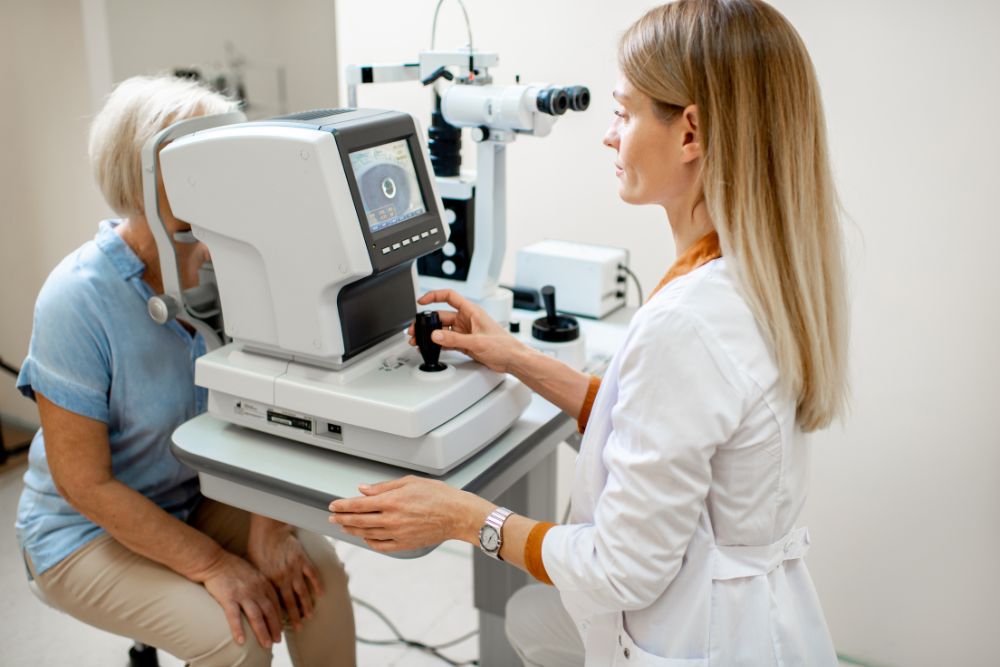Behind the Lens: The Vital Role of Retinal Ophthalmic Photographers

Originally Published by Retina Associates, LLC.
Retinal ophthalmic photographers play a crucial role on an eye-care team. They work alongside retina specialists and surgeons, taking detailed pictures of patients’ eyes to help diagnose diseases and disorders, as well as determine the next steps for treatment.
Let’s discuss some retinal ophthalmic photography techniques, the importance of being an ophthalmic photographer, and how you can get into the field and work for a top-tier retina specialist team like Retina Associates.
The Importance of Retinal Photographers
A healthy retina is vital for maintaining clear vision and overall eye health. However, because the retina is a light-sensitive tissue lining the back of the eye, it can be challenging for doctors to examine it in detail. That’s where a retinal ophthalmic photographer comes in.
Using a high-resolution camera and a specialized optical system, the photographer can take close-up pictures of the retina, optic nerve, vitreous, and macula, aiding in the diagnosis of conditions like:
- Macular degeneration
- Diabetic retinopathy
- Hypertensive retinopathy
- Retinal tears and detachments
- Macular conditions
Once the doctor can accurately diagnose an eye condition, they can recommend the most appropriate and effective treatment option, leading to better patient outcomes.
Ophthalmic Photography Techniques
Just like in any field of photography, there’s skill and precision involved in taking pictures of the eye. Some common ophthalmic photography techniques that assist in diagnosis include:
- Fundus photography: A specialized fundus camera consisting of an intricate microscope attached to a flash-enabled camera is used to photograph the fundus, which is at the rear of the eye.
- Angiography: Contrast material is injected into the eye to see where blood is moving and where blockages are. The ophthalmic photographer can use X-rays or other types of imaging to assist the doctor in diagnosis.
Both techniques are minimally invasive and greatly effective at capturing multiple parts of the eye in detail.
How to Become a Retinal Ophthalmic Photographer
If this sounds interesting to you, consider becoming a retinal ophthalmic photographer. The job requires a certificate or associate’s degree in ophthalmic technology. Required skills include good eyesight so you can help diagnose retinal conditions. Additionally, the ability to use computers and digital equipment is vital to successfully capturing the retina. A background in photography is a huge plus, and you’ll want to ensure your ophthalmic technology program includes photography courses.
Apply with Retina Consultants of America Today
The practices within the Retina Consultants of America network are always looking for talented individuals to join our growing team. We have job openings across the entire United States. If you're interested in exploring an exciting career in retinal care, please review our open positions and contact us to apply.